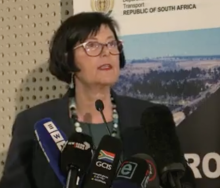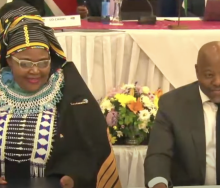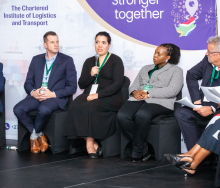The National Ports Regulator of South Africa has rejected Transnet National Ports Authority’s (TNPA) application for a hefty 9.24% tariff hike and instead implemented a 3.2% increase in the overall average tariff.
National Ports Regulator acting chairperson Dr Tshisikhawe Munyama announced its new tariffs for the 2023/2024 financial year during an online media briefing on Thursday.
TNPA had submitted an application for an average tariff increase of 9.24% for the period April 1, 2023 to March 31, 2024, together with indicative tariffs of 25.84% for the period April 1, 2024 to March 31, 2025 and 3.64% for April 1, 2025 to March 31, 2026.
“During the four-month period of assessing the application, the Regulator afforded the authority an opportunity to submit additional information substantiating and motivating for the request of a 9.24% tariff increase, which the Authority has utilised,” Munyama said.
The Regulator’s application of the regulatory framework, including the Multi-Year Tariff Methodology, aimed to provide certainty for investments, sustainability of the industry, quality of service, and reduction of costs of doing business to ensure affordability and accessibility to the port system.
Munyama added that the regulator had taken the economic factors facing businesses into consideration when setting the overall weighted average tariff adjustment at 3.2%
“The Regulator is also cognisant of the economic challenges facing the country, both from the underlying structural challenges, but also more pressing the after-effects of the Covid-19 pandemic and flooding on the port system and particularly the port users,” he said.
In effect, the Regulator approved revenue of R14 001 million as opposed to the R14 561m TNPA had applied for. This will be recovered from R 9 791m in marine charges and cargo dues and R 4 210m in real (lease) estate rental fees.
According to the record of decision on tariffs, the following price increases will be implemented from April 1, 2023:
• Marine services and related tariffs (Sections 1-8 of the Tariff Book, excluding Section 7 that deals with cargo dues) increase by 8.6%
• All container cargo dues remain unchanged
• Dry bulk coal export cargo increases by 6.0%
• Dry bulk export of magnetite cargo increases by 6.0%
• Dry bulk iron ore export cargo dues increase by 6.0%
• Ro-ro cargo dues remain unchanged
• Liquid bulk cargo dues remain unchanged
• All other tariffs remain unchanged
In addition, marine tariffs (Sections 1-8 of the Tariff Book, excluding Section 7 that deals with cargo dues) for existing commercial South African-flagged vessels as well as commercial vessels registered in South Africa from 2019/20, will receive a 30% discount applicable year on year until reviewed by the regulator. All marine tariffs applicable to ship building and ship repair (inclusive of dry docking and booking fees) will remain unchanged pending the presentation of a ship building and ship repair strategy by the authority in consultation with the industry.
All licence fees for port activities as per section 5 of the Tariff Book will continue to be discounted by 30%, while a continued reduction of 35% in port dues will be allowed for vessels not engaged in cargo working for the first 30 days only, bona fide coasters, passenger vessels, and small vessels when visiting a port other than their registered port. Vessels in port for longer than 30 days not engaged in cargo working or undergoing repairs will be liable for a 20% surcharge on the incremental fee of port dues. A reduction of 60% will be allowed to vessels calling for the sole purpose of taking on bunkers and/or stores and/or water or a combination of all three, provided the vessel’s entire stay does not exceed 48 hours.
“The tariff determination was taken with due consideration to balancing the sustainability of the Authority with the need to keep tariff increases affordable to port users. In this regard, the Regulator is confident that the outcome of this review process will not only protect port users, but also ensure that the authority remains sustainable and adequately resourced to fulfil its mandate and deliver services to port users and stakeholders,” he said.













